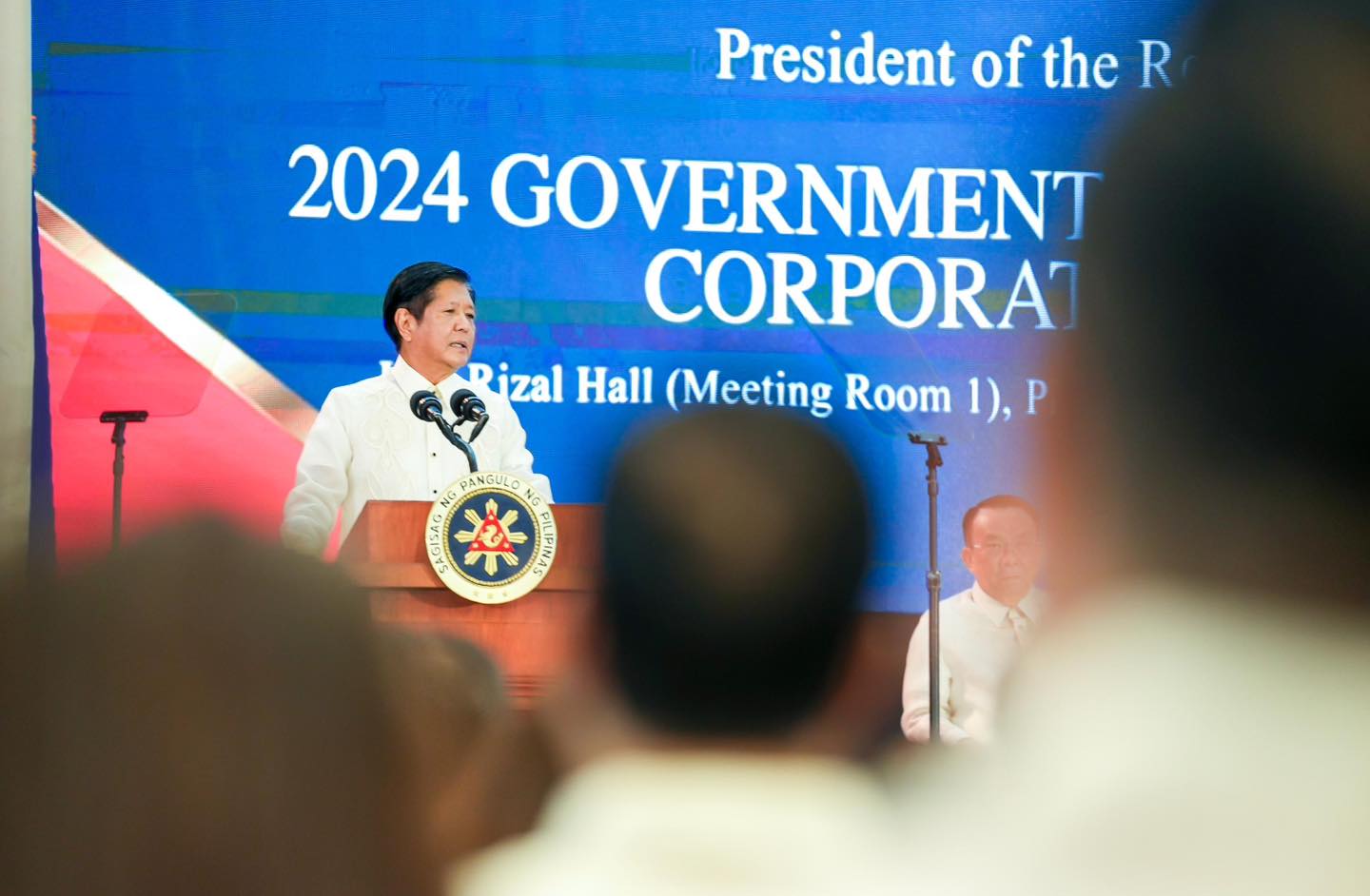News
Marcos rejects use of water cannons to retaliate vs. Chinese vessels

In a media interview, Marcos stressed that it was not the country’s mission to increase tension in the disputed waters. (PCO file photo)
MANILA – President Ferdinand R. Marcos Jr. on Monday said the Philippines will not use water cannons to retaliate against China’s continued harassment in the disputed areas of the West Philippine Sea.
In a media interview, Marcos stressed that it was not the country’s mission to increase tension in the disputed waters.
“What we are doing is defending our sovereign rights and our sovereignty in the West Philippine Sea and we have no intention of attacking anyone with water cannons or any other such offensive,” Marcos said.
“The last thing we would like is to raise the tensions in the West Philippine Sea. That’s the last. And that would certainly do that, so hindi natin gagawin (we will not do that). We will not follow the Chinese Coast Guard and the Chinese vessels down that road because it’s simply, it is not the mission of our Navy, our Coast Guard to start or increase tensions,” he added.
The President made the statement amid calls for the Philippines’ retaliation following a recent incident in the Bajo de Masinloc (Scarborough Shoal), where Chinese Coast Guard vessels blasted the Philippine Coast Guard’s BRP Bagacay and Bureau of Fisheries and Aquatic Resources’ BRP Datu Bankaw with water cannons.
Both Philippine vessels sustained damage due to the attack, authorities said.
According to Marcos, the Philippines would continue to file diplomatic protests to address China’s aggression in the West Philippine Sea.
The Philippines and China have been locked in a longstanding territorial row amid Beijing’s expansion in the vast South China Sea, which it virtually claims along with maritime features that are well within the Manila’s exclusive economic zone like Scarborough Shoal or Panatag Shoal.
Scarborough is the largest atoll in the South China Sea, located some 220 km. from the Philippines.
China’s claim, anchored on the nine-dash line which is now a 10-dash-line, has already been rejected by the 2016 ruling of the Permanent Court of Arbitration, which it vehemently disregards.
Commitment to stability, diplomacy
Senators Jinggoy Estrada and Francis Tolentino commended President Marcos for refusing to retaliate against the repeated aggression of Chinese vessels in the WPS.
In a statement, Estrada said the President’s stance demonstrated his commitment to stability, diplomacy, and the long-term interests of the country.
“We must focus our efforts on ensuring the protection of our territorial and maritime interests by adhering to the principles of the rule of law. This entails the use of diplomatic channels and peaceful means of conflict resolution,” the chairs the Committee on National Defense said.
“Let us stand together in supporting our government’s principled approach. By following international norms and pursuing peaceful means, we can protect our maritime rights while avoiding unnecessary conflict.”
Meanwhile, Tolentino cited Marcos’ decision as “pragmatic and responsible,” considering the prevailing situation, as well as maintaining the Philippines’ moral high ground.
“Whether the said is decision is ephemeral, only the President could decide,” Tolentino said.
In an interview last week, Tolentino said Philippines should focus on strengthening its defense posture instead of retaliating against China. (with a report from Wilnard Bacelonia/PNA)





















